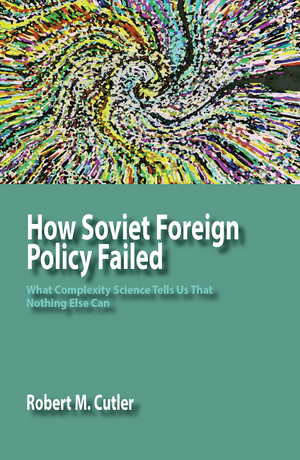
Avoiding Policy Failure: A Workable Approach (PDF)
Why do policies fail? How can we objectively choose the best policy from two (or more) competing alternatives? How can we create better policies? To answer these critical questions this book presents an innovative yet workable approach. Avoiding Policy Failure uses emerging metapolicy methodologies in case studies that compare successful policies with ones that have failed. Those studies investigate the systemic nature of each policy text to gain new insights into why policies fail.
In addition to providing intriguing directions for research, this book also suggests a bold new standard for evaluating policies. While this method is broadly generalizable, specific examples are provided showing how to develop better Economic Policy, Military Policy, and Constitutional Organizations. This book shows scholars, researchers, and policy analysts how to develop more effective policies so that we may achieve our highest aspirations and avoid the horrendous failures of the past.
In a highly cynical time it is refreshing to see someone who still believes in the power of government for good. As John Kenneth Galbraith reminded us, there really is no choice between planning and not planning. There is either planning by elected officials or planning by unaccountable banking and corporate elites and we have seen where that gets us. Steven offers a novel approach to improving the essence of policy in an era where it is so sorely needed. It should be required reading for policy-makers as well as scholars.
Gregory A. Daneke
Professor Emeritus, Arizona State University, USA
In this provocative book, Wallis takes on the complacency of sociologists and political scientists alike who continue to subscribe to conventional theory that has resulted in failed policies. These failures are eminently solvable, argues Wallis, by employing a level of analysis before implementation that allows us to predict more precisely policy outcomes. A must read for scholars and practitioners, this book is useful for policy analysts, social theorists, and teachers.
Katrina S. Rogers
School of Human & Org. Development, Fielding Graduate University
In this small book Steve Wallis deals with the problem of how to avoid reduction of approaches used when studying social problems and policies to qualitative or quantitative methods. He considers, as others, propositional analysis for the estimation of policies and strategies. But he also proposes usage of suitable indexes to estimate logical complexity and robustness of texts representing charters, policies, missions, and strategies. This innovatively reproduces approaches used in science of complexity such as using multiple models to represent dynamics of the same phenomena and emergent coherence. The book considers real cases. This opens the way to establish meta-approaches able to consider necessary conditions for effective policies. This is an important step!
Gianfranco Minati
Doctoral lecturer at the Polytechnic of Milan, Department ‘Building Environment Sciences and Technology, Italy
Steve Wallis belongs to a growing group of meta-scientists, people who are applying methods of core sciences to high-order mental constructs such as theories and policies. In this small book he suggests an algorithm of propositional analysis for the estimation of the effectiveness of a policy before its realization on practice. Steve is not the first researcher doing so, surely, he is not the last. But Steve makes a difference. In a series of case-studies he proves that policies with higher levels of structure (higher internal integrity and greater complexity) tend to be more effective in practical application, and, conversely, policies of lower complexity and less internal integrity are less effective. Congratulations with enormous success!
Ilya Garber
Department of Pedagogy and Psychology of Professional Education, National Research Saratov State University, Russia
Coeditor of the Journal Methodology and History of Psychology
Click here to download detailed contents (PDF format)






